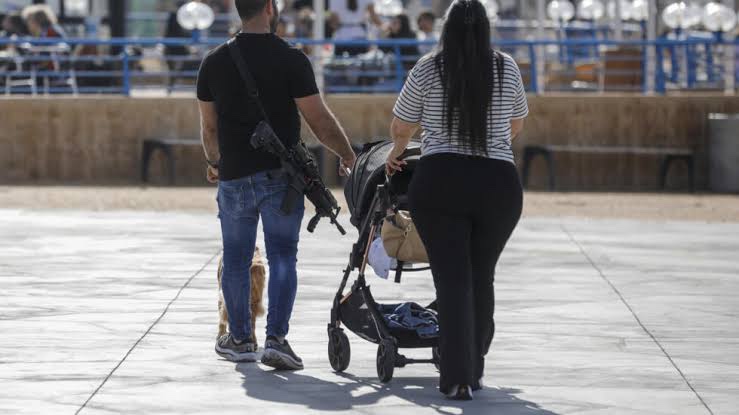Israelis on edge as fears grow of wider Lebanon conflict

In the seaside haven of Nahariya, the shock still lingers on Daniel Bussidan’s face. A recent rocket attack killed his friend’s father, and now this Israeli beach town, the closest to Lebanon, stands on edge.
“I’m scared from the attack,” said the 26-year-old who works in his father’s pastry shop on the Mediterranean resort’s eucalyptus-lined main street.
His friend’s father was killed when a rocket struck his farm while he was working, Bussidan told AFP.
“He died on the spot,” Bussidan said.
In peacetime, visitors flock to the town to enjoy its pleasant climate and good surfing.
But for over two months, residents have been living under the threat of near-daily exchanges of fire between the Israeli army and powerful Lebanese movement Hezbollah.
The Iran-backed Shiite group says it entered the fray in support of Hamas on October 8, the day after the Palestinian militants launched their attack in Israel which killed around 1,200 people, mostly civilians, according to Israeli officials.
Aiming to destroy Hamas, Israel launched a military offensive that the health ministry in the Hamas-run Gaza says has killed 17,490 people, mostly women and children, and left the Palestinian territory in ruins.
In northern Israel, residents fear a wider conflict emerging along the border with Lebanon, which snakes along a hill in the distance from Nahariya.
More than 120 people have been killed on the Lebanese side of the border since October 7, mostly Hezbollah fighters and more than a dozen civilians, according to an AFP tally.
Israel says six of its soldiers and four Israeli civilians have been killed in the area, and Lebanon lost its first soldier in the exchanges on Tuesday.
Israeli Prime Minister Benjamin Netanyahu warned Hezbollah that if it “chooses to start a global war, then it will turn Beirut and South Lebanon… into Gaza and Khan Yunis with its own hands.”
- ‘We’re waiting for it’ –
Business has slumped along the Nahariya seafront, and many more rifles have appeared, slung over people’s shoulders.
Resident Nathalie Betito, 44, believes Hezbollah fighters could infiltrate the border. But she made a point of celebrating Hanukkah, the Jewish festival of lights, with around 100 people at the central synagogue this week.
She and her husband Arie, 47, immigrated from France five years ago. Nahariya represents an attractive destination, with special tax breaks due to its exposed position.
Arie, who now helps new arrivals at the town hall, said residents were nonetheless living in peril.
Hezbollah has thousands of “missiles pointed at us”, he said, stressing that he did not believe in escalating the conflict into a “total” war.
“The price to pay would be huge,” he said. “Neither side wants that.”
But people in Nahariya are preparing for the worst. Efi Dayan, 60, said he “knows there’s going to be a war here”.
“We’re getting ready with food, clothes. We’re waiting for it,” he said calmly under the winter sun.
But the military job in Gaza needs to be completed first, said Bussidan, a former soldier himself.
“We have to finish Hamas and take care of all civilians on both sides,” he said.
by Blaise Gauquelin
©️ Agence France-Presse












